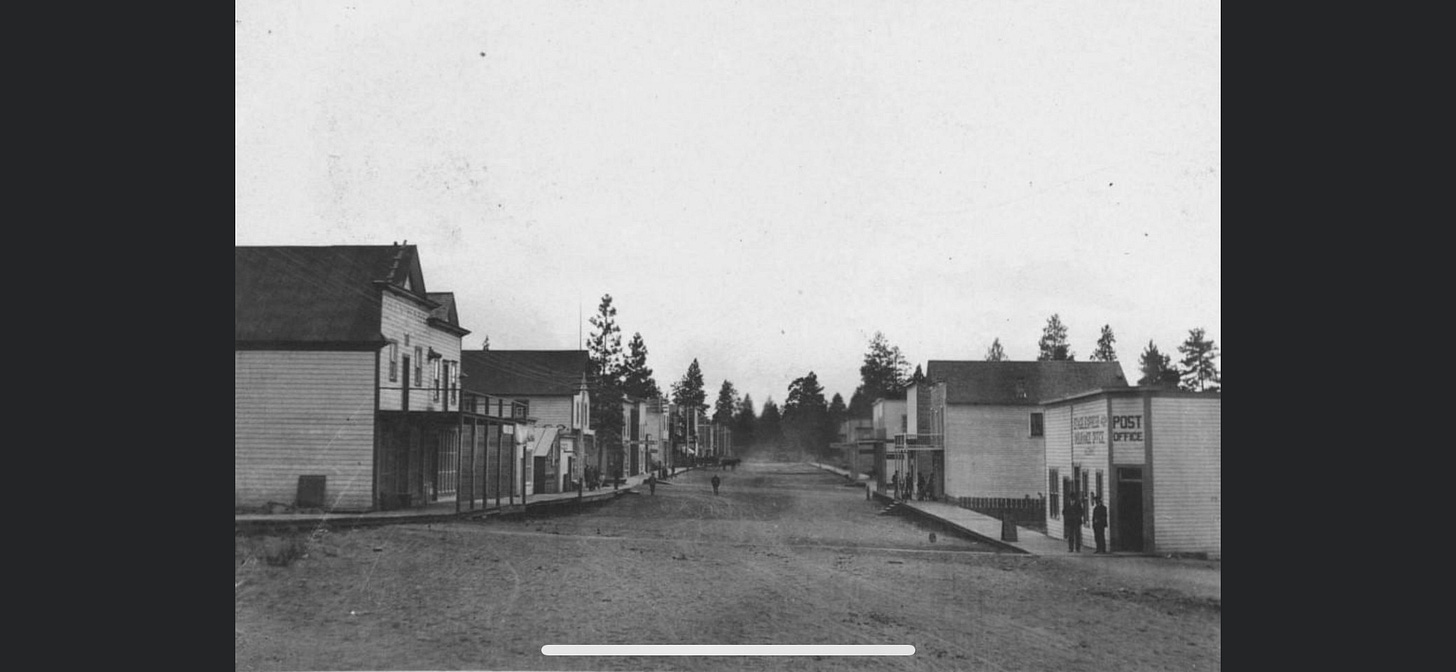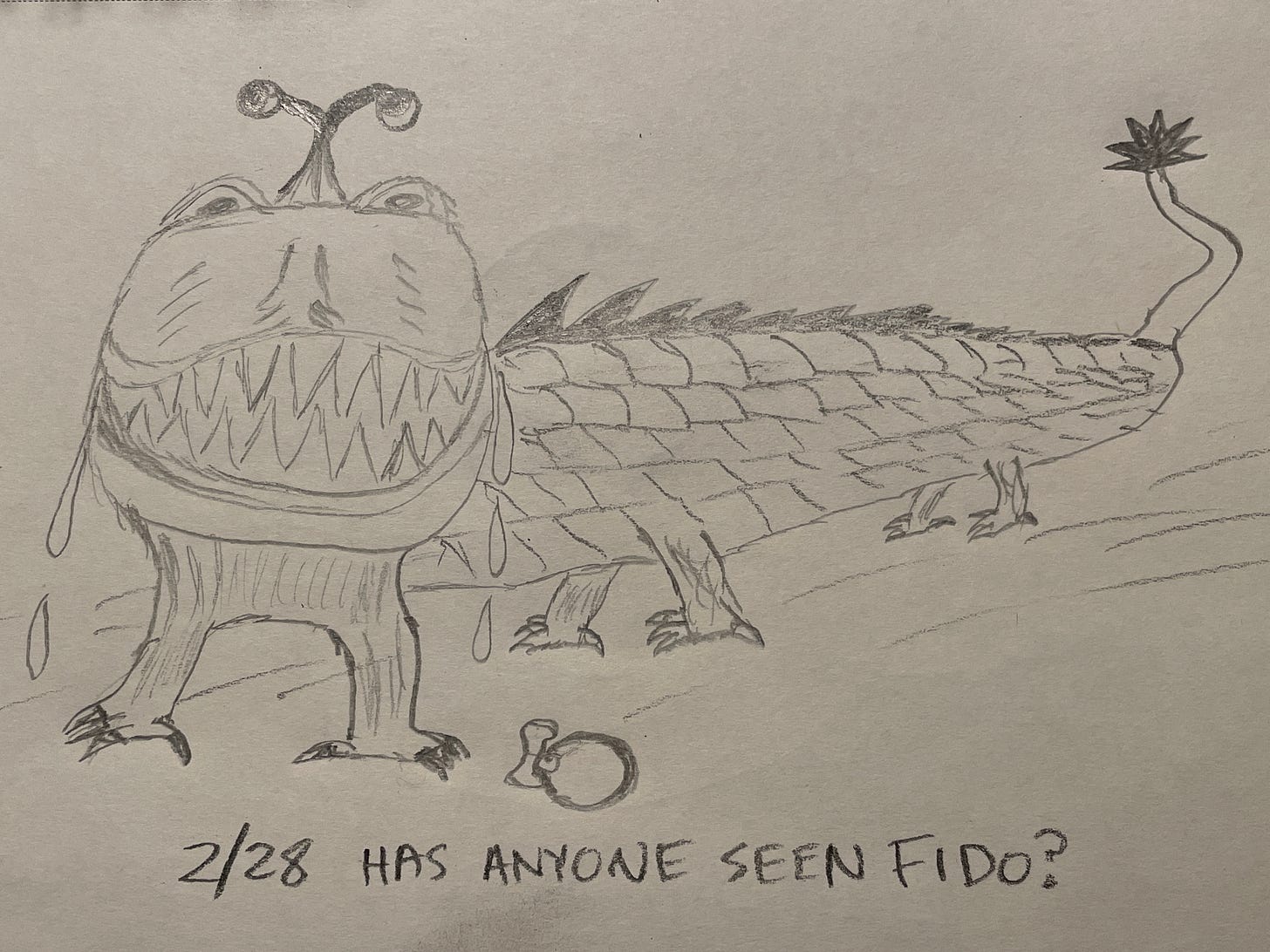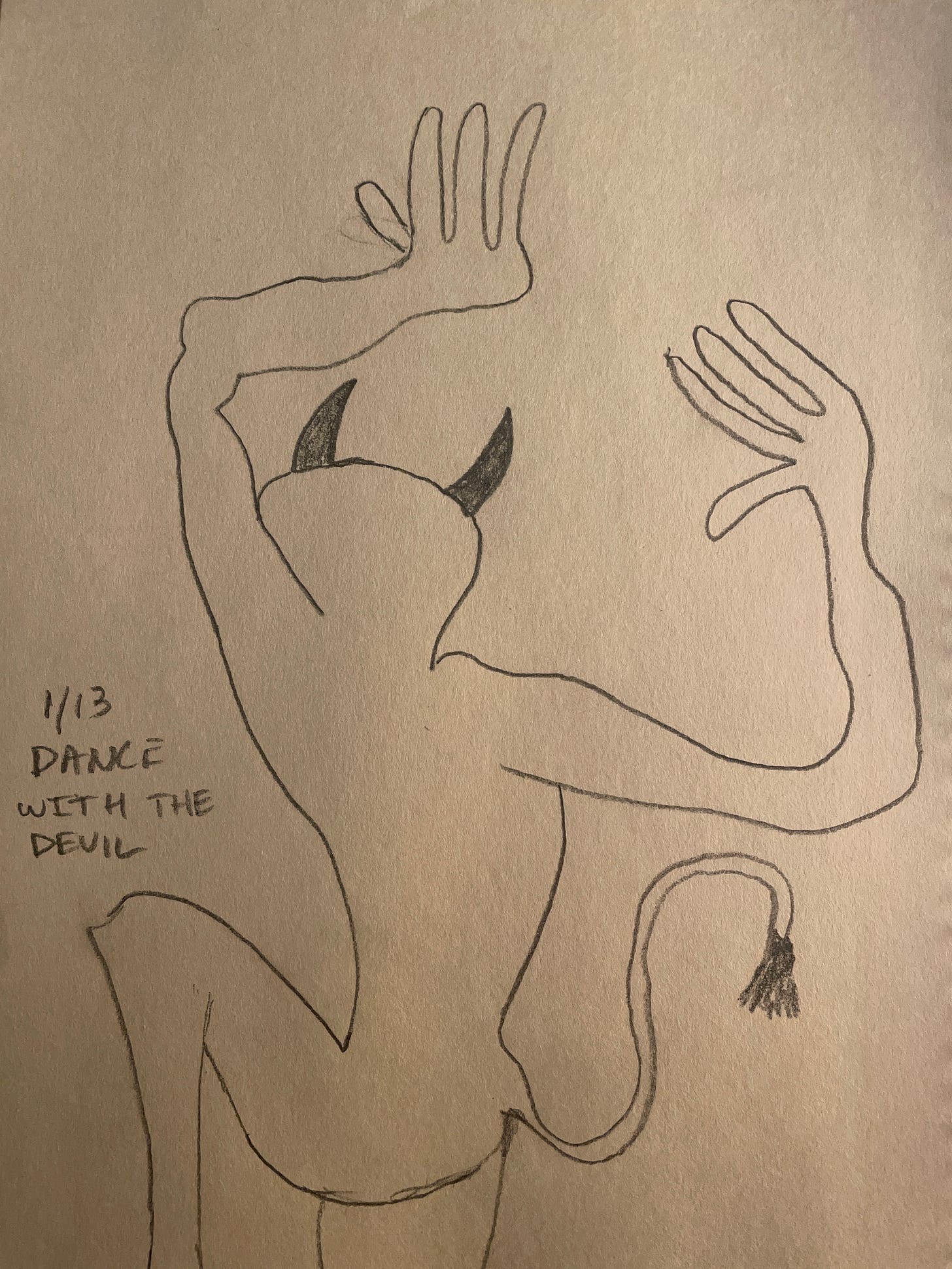Do you want be a buddy or a friend?
One is fun, one is fun AND makes you wiser
Howdy to all the new subscribers this week and welcome back to Traipsing About! If you’re new around here, this is my newsletter about reclaiming creativity and ditching tired personal paradigms.
Thanks to everyone who responded to my last newsletter about my tribute to my friend Lee. I loved this informed and wise response from Traipsing reader George’s regarding aging (shared with his permission):
I’m pretty pragmatic: don’t give up too easily but adapt, don’t leave a mess for others to clean up, and keep doing those things which have sustained you, i.e.
Sleep well, eat well, value your friends, learn new things, get plenty of exercise.
Preach, George!
With that cheery topic behind us, let’s lighten the mood with Mozart. I’m usually not a huge fan (Chelsea calls it “castle music” lol), but Fantasia in D minor is more Romantic-esque and I dig it. A proooject for me with the speed and the stylistic variations. Here’s my recording of it, part of my challenge to record myself playing for future reference. Even if turning a camera on temporarily deletes my brain sometimes…

This week on Buddying About, Edition #120:
Buddies vs. friends
Dealing with homelessness
Traipsing Tidbits: forgotten music, sensitivity, eye-popping nature photos…
ICYMI: last newsletter I wrote about two years of learning languages (and everything!) with the powerful app Anki. Cool to hear from those who have tried it at my prodding suggestion and reaped the benefits.

Dude! Buddy! Pal!
Over the past few years, I’ve dug into what makes me tick and felt an earthquake rumble beneath me, a realignment of who I am. I’ve rethought which situations light me up, which drain me.
For one, while I’m certainly extroverted, I’ve realized I need far more down time than I thought. My perfect days used to all include social time…now, a couple of hangouts per week is enough. Multiple in a day? Too draining. I need time to read, play piano, study languages, or just stare out the window.
Now I also prefer small gathering vs. big parties, deep conversation vs. small talk. I’ve gravitated away from more topical stuff. (I mean, I just started ANOTHER newsletter off with talk of dying. #DeathingAbout)
All of this reminds me of this quote from philosopher John Vervaeke:
Buddies are people you do stuff with.
Friends are people who are committed to you becoming wiser.
And you’re committed to them becoming wiser.
Ah yes, buddies. The classic trap men fall into of doing activities side by side versus actually looking at each other and having real conversations.
Looking back, I realize my friend network for most of my life was comprised of buddies. And you know what sucks?
I was largely at fault.
Instead of striving for deep friendships, I’d default to shallow topical talk about travel, work, mountain biking, food, blahblah. In short, I was a buddy.
How did I get there?! Perhaps through acculturation (*cough high school sports). Or just being a guy and all the railroading toward certain behaviors that happens there, mostly easy, trivial conversation, lots of joking and teasing.
As an adult, this fit into my focus on work (“deal friends”) and activities. Long-term travel also resulted in shallower relationships—it’s part of the game.
Buddies and work friends are both necessary and valuable in our lives. However, like a square is a rectangle but a rectangle isn’t a square, friends can be buddies, but not vice versa. I lacked the third leg of that tripod, strong friendships rooted in vulnerability. Friendships committed to mutual wisdom.
NEVER TOO OLD TO CHANGE, DAMMIT.
Starting in 2019, I began thinking more deeply about relationships and my role in them. It was the start of the tectonic shift in my priorities. Then the COVID bomb dropped and blew every routine to pieces.
Between that and shifting how I show up in the world, now I spend almost all my social time with friends, not buddies. What’s amazing is how me showing up in a deeper way has allowed others to rise to the occasion. Some buddies fell by the wayside, but others morphed into friends!
Overall, there’s a different feel and expectation surrounding the friendships, a greater depth and connection. My conversations lean away from the trivial (with plenty of laughing and joking around, don’t you worry).
Now my goal is to turn more buddy rectangles into friend squares. It’s all about how I choose to show up.
Related reading:
My post about boundaries, “Building friendships the right way.”
My thoughts on compersion vs. jealousy, “A better side of envy.”
Everything you know about homelessness is wrong
Talk to most people about what they dislike about living in a big city and I’d bet homelessness is in their top three. We felt it when we lived in Portland; it’s in the news in Bend.
Well, this fantastic dissection of homelessness refined upended my views. Before addressing the primary problem, the author takes on (and refutes) five claims for why people are homeless:
Mental health problems: nope, low correlation.
Drug use: nope, most people start doing drugs to COPE with not having a home.
Problem of poverty: nope, cities with high poverty don’t have high homelessness.
Good weather: negative, Batman. Most people experiencing homeless are from the city or state in which they still live, not because it has beach weather.
Progressive policies attract homeless: ahhh, I believed this prior to this article…but swing and a miss, no correlation. Many progressive cities (e.g. Chicago and Detroit) have low homelessness, while San Francisco and New York do not.
Sooo what is it?
WINNER: the cost of housing! Yup, if your city’s housing is unaffordable, you’re going to have problems with homelessness.
The author concludes:
Places with the highest drug addiction rates, highest severe mental illness rates, highest poverty rates, most generous welfare benefits, and the nicest weather don’t have the most homelessness. Places with the highest housing costs do.
As the data clearly shows, places with the best track records of reducing homelessness do two things: (1) they build ample housing, thereby preventing many cases of homelessness from occurring in the first place, and (2) have ample subsidized housing, which humanely and effectively addresses the homelessness that does occur.
I read the top comments and a major point stuck out: most people only care about the visible homeless, e.g. the small numbers in your face on the subway or those who feel threatening. Tip of the iceberg stuff. However, governments care about the overall situation, the unseen iceberg mass comprised of people working a low-wage job and sleeping in their car in the woods or crashing on a friend’s couch. Out of sight, but struggling.
To address both, the biggest bang for the buck by FAR is cheap housing. But mental health programs and drug counseling programs are still necessary to take care of everyone.
Traipsing About Tidbits
I wrote this newsletter re-listening to the Searching for Sugarman soundtrack (such good lyrics!). (Spotify, Youtube, Apple Music). The mystery-documentary is worth a watch as well—here’s the trailer.
Chelsea and I are both reading The Highly Sensitive Person and having our minds blown. As part of that, we took the author’s short test to see where we landed…you might learn a few things about yourself too!
I love these nature photos from around the world.
I still enjoy my 70-character daily econ tidbit from The Bowtie Economist.
I fixed a water heater plumbing drip yesterday and cut my finger a bit in the process. Liquid Skin band-aids for the win!
Quote of the Week
Thinking about buddies and friends reminded me of this fantastic quote from James Clear:
The ability to love yourself improves your ability to be loved. We are unlikely to accept a relationship that is worse than the one we have with ourselves, and thus the person who is happy and comfortable with themselves is in a great position. The person with healthy self-esteem doesn't have to jump into any relationship because they already have a great one wherever they go.
You’ve reached the end of Traipsing About newsletter #120.
This week’s unsolicited advice:
Think about your relationships and whether you show up as a buddy or a friend. Both can work depending on the situation, but are there any adjustments you’d like to make?
Catch you next time!
Dakota
Thanks for reading Traipsing About! I appreciate you taking the time to read it. I always love to hear from you, so hit reply and send me an email anytime. I read and respond to every one!
If you enjoy this newsletter, please forward to a friend. And if you’re that friend and want to subscribe, just hit the button below.





